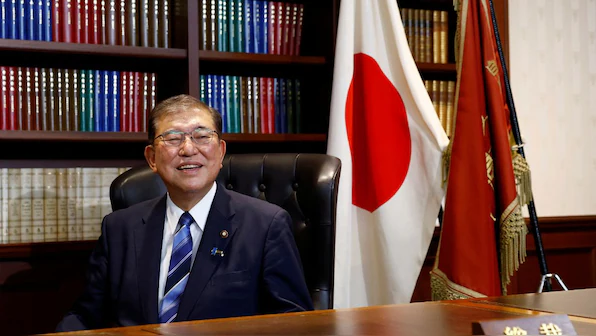Japan’s crisis-hit ruling Liberal Democratic Party (LDP) has elected its new leader, Shigeru Ishiba, who is all set to be appointed Prime Minister on Tuesday, replacing Fumio Kishida who had announced last month that he would not stand for re-election. Nine candidates contested for the top post. Despite being fairly popular among the public, Ishiba, a former defence minister, has made four unsuccessful attempts in the past to lead the LDP, including a 2012 contest against his arch rival, the late PM Shinzo Abe who was assassinated in 2022.
Ishiba’s honesty and criticism of the PM, an uncommon occurrence in Japanese politics, have unsettled some party colleagues while they have resonated with the public. Well-informed about the intricacies of party dynamics and security policies, Ishiba, who had earlier called for an Asian version of the NATO, emphasizes the need for Japan to bolster its security in light of recent territorial incursions by Russia and China, as well as a rogue North Korea’s relentless missile tests.
Seen as a votary of sustainable development, Ishiba has advocated for a transition from nuclear power to renewable energy in the aftermath of the Fukushima disaster.
Among the public, Ishiba is known for his progressive stand on several gender-related issues. He has called for an update to a 19th-century civil code that mandates married couples to select one of their surnames, which has led to the majority of women taking their husband’s surname. Efforts to amend the code have been hindered for decades due to opposition from the LDP. In a recent speech, Ishiba noted that Japanese women are among the shortest sleepers globally due to their significant responsibilities at both work and home. He also stated that most Japanese husbands, himself included, provide little assistance to their wives in child-care and household chores. Moreover, Ishiba backs legislation that would enable women to ascend as reigning empresses, a proposal that faces stiff opposition from numerous conservative lawmakers from within the LDP.
The leadership transition has taken place during a tumultuous period for the party, which has been shaken by scandals and internal strife. It also represents an effort to restore the public’s trust that the party has lost in recent months due to a stagnant economy and a cost of living crisis. In the wake of the COVID-19 pandemic, Japanese families are experiencing financial strain due to a weak yen, a stagnant economy, and rapidly rising food prices, which are increasing at the fastest rate in nearly 50 years. Additionally, wages in Japan have seen little change over the past three decades. This prolonged economic stagnation is putting significant pressure on Japanese households and leading to demands for stimulus package. As a result, the LDP, which has ruled Japan for most of its post-war period, is gradually losing public support.
Ishiba’s party now expects him to leverage his experience and expertise to counter the main Opposition, the Constitutional Democratic Party, which has recently appointed former Prime Minister Yoshihiko Noda, a seasoned politician renowned for his inspiring speeches, as its new leader.
Despite being viewed as an outsider within his own party, Ishiba’s no-nonsense personality and clear respect for voters contribute to his public appeal. His ascendancy to the top post indicates the acceptance of a leader who speaks the truth and is pro people while not resorting to any theatrics to get into the seat of power.
